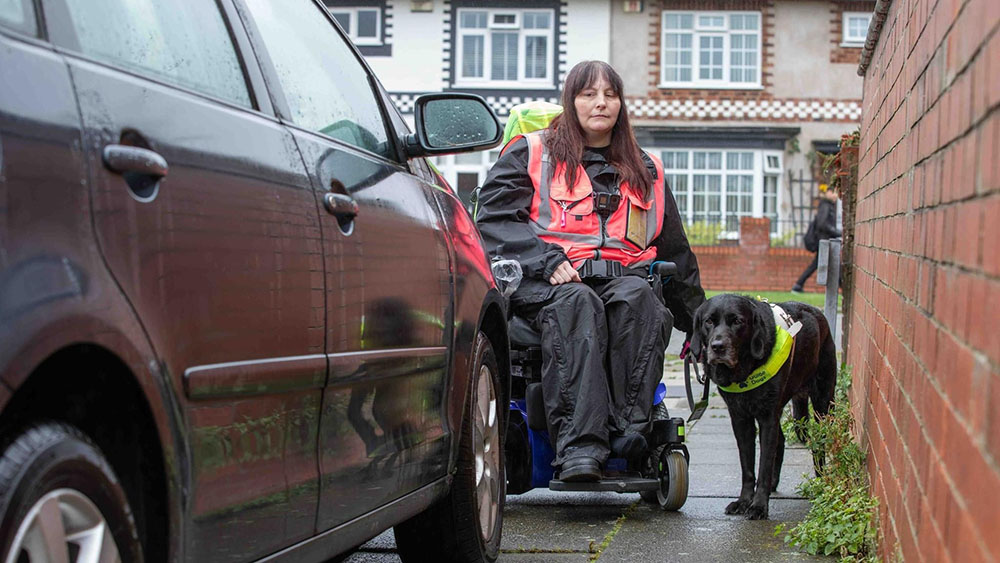Charity seeks photos of pavement parking in Cardiff to aid visually impaired. Is this a reasonable way to leave your car or does it blight lives?

Bin day is a nightmare for Sam Palfe. It’s the day when she has to navigate pavements strewn with bins, recycling boxes and cars parked on the pavement.
It’s a problem for everyone, but even harder when, like Sam, you are blind and the mother of a three-year-old boy who is also visually impaired.
“In our area, it’s something I must deal with every day. As people with visual impairments, we are constantly put in dangerous positions by having to walk in the road because cars have parked on the pavement.” says Sam.
Pavement parking is a long-standing and wide problem in the UK. According to the gov UK, of the 68 local authority responses to a survey carried out by the department, 57 reported that pavement parking was a widespread problem in their area.
It has also noted that vulnerable pedestrians are most at risk, and in particular: people with visual impairments; people who use mobility aids, including guide dogs, wheelchairs, and mobility scooters; young children and people with prams and pushchairs.
That’s why Guide Dog UK has been working on pavement parking for more than a decade, and they have launched a campaign to strengthen the law on pavement parking since September 2023.

“While pavement parking may be convenient for drivers, it acts as an immediate physical barrier to some members of society including older people, disabled and wheelchair users, parents with young children and, of course, people with sight loss.” says Helen Honstvet, Senior Public Affairs and Campaigns Manager at Guide Dogs.
And the Guide Dogs Cymru are now inviting people to share their worst examples of pavement parking to keep the pressure on the Welsh government. People can email their pictures to Deborah.ress@guidedogs.org.uk to do their own part on this issue.
It is worth watching that pavement parking has been banned in Edinburgh with fines up to £100 from 29th January.
“It’s a great step to see that,” says Sam, “Now this is going to have no immediate benefit for me as we are nowhere near Edinburgh. However, it’s a great sign that people are listening, and we do need a nationwide ban on pavement parking not just to help people with visual impairments or other disabilities, but also people who require a little bit more space and families with prams.”
As Sam said, it is not just the vulnerable pedestrians who have to face the dangers of pavement parking. And Guide Dogs also not the only one who committed to promoting the solution of this issue.
Sustrans, which is a charity aim to making it easier for everyone to walk, wheel and cycle, has also tried to highlight the necessity of banning pavement parking.
“To make walking and wheeling a natural choice for journeys, it is critical that everyone feels safe and confident in their neighborhoods.” Says Tim Burns, Head of Policy at Sustrans. “However, cars parked on the pavement are a common occurrence across the country.”
Sustrans’ Walking and Cycling Index showed that 65% of residents supported the prohibition of pavement parking (while only 16% oppose it), and 68% of residents believe fewer vehicles parked on the pavement would help them walk or wheel more.
“None of us should be made to have to walk in the road where it’s unsafe.” says Sam. Edinburgh has made the move, is it time for Cardiff to do the same?
